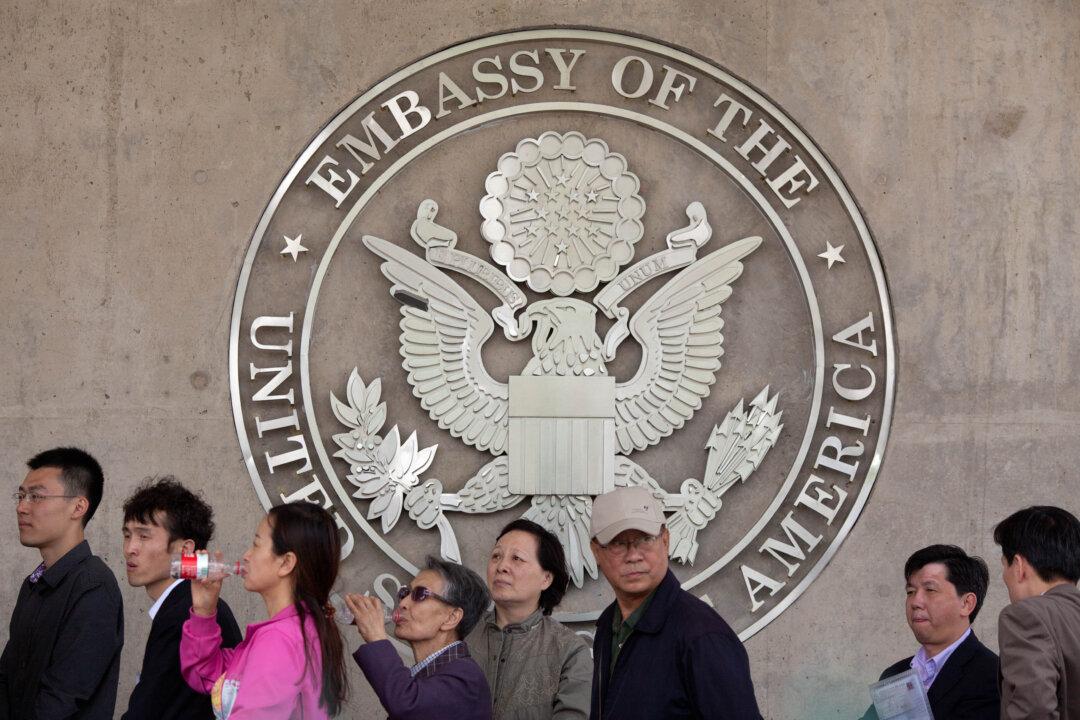A manager at China’s state-run newspaper Global Times has been denied a visa to the United States, weeks after a U.S. human rights bill backing Hong Kong protesters became law.
Hao Junshi, the manager of the new media department at the Global Times, in a Dec. 16 post on China’s Twitter-like Weibo, said the U.S. Embassy in China had rejected his application for a non-immigrant visa, while attaching a photo of the letter from the embassy. He didn’t specify which visa he had applied for.





